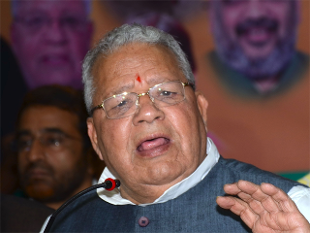n June this year, Govt. of India had created a special Rs 10,000 crore worth fund of funds for Indian startups, which expected to generate 18 lakh jobs. Under this scheme, Small Industries Development Bank of India (SIDBI) was empowered to allocate funds to various Alternate Investment Funds (AIF) registered under SEBI, which in turn would fund emerging startups in India.
In a recent event organized by World Economic Forum, Govt. has admitted that disbursement of funds via this special scheme has been slow as of now, as only 600 startups have been funded for a total amount of Rs 1100 crore, out of Rs 10,000 crore corpus.
Although Govt. plans to eventually provide Rs 50,000 crore via Fund of Funds scheme, the process of allocating funds to startups have been rather slow. Department of Industrial Policy and Promotion (DIPP) secretary Ramesh Abhishek has assured all investors and entrepreneurs that they are now fast-tracking the process, and more startups would be now funded via Fund of Funds route.
He said, “So far only Rs.1,100 crore has been disbursed. Our aim is to mobilize Rs.50,000 crore of private investment through this fund..”
Collateral-Free Loans For Startups
As part of fast tracking the process of disbursing venture capital for emerging startups, Ramesh informed that DIPP would soon launch a corpus of Rs 2000 crore, which would provide collateral-free loans to startups.
In fact, a proposal has already been sent to the cabinet to create a special ‘Credit Guarantee Scheme’ of Rs 2000 crore, which would empower banks and financial institutions to provide loans to startups without any collateral.
If approved, this can be a game-changing move for entrepreneurs in India, who are stuck at approvals because the current rules and regulations are strict in giving out loans for unestablished businesses. Startups needs money to expand, and banks/financial institutions provide loans only to established businesses with proven track record of generating revenues; and the vicious cycle continues.
Besides, Ramesh also informed that they have written to 100 companies to use their Corporate Social Responsibility (CSR) funds to set up incubators which can groom and help startups in India.
Indian Entrepreneurs Share Their Ideas For Helping Startups
At the event, some of the most successful Indian entrepreneurs shared their ideas for improving startup eco-system in India and to groom future entrepreneurs.
Mahesh Murthy, managing partner of Seedfund, said that a shift in culture and mindset is required to provide better assistance for Indian startups. As per him, till now, Indian startups have been copying Western ideas, but now, we need to think out of the box.
He said, “Only now they are beginning to have original thoughts in this generation. It is culturally very difficult for us to be innovative,”
Vijay Shekhar Sharma, Founder of Paytm, emphasized on ‘Make in India’ drive, as he said,
“Japanese built Honda, Toyota, Nissan when Germans and Americas had built their largest auto companies. We have to build products, built in India, made in India, made for India in Indian context. The world needs lower cost, higher scalable built out of countries like India..”
Ritesh Agarwal, Founder of Oyo Rooms said that laws related to startups and entrepreneurship needs to be changed if Govt. wants to truly help them. He said, “It is our responsibility as entrepreneurs to proactively go out and converse with the lawmakers and explain to them what the problems are..”
source:http://trak.in/tags/business/2016/10/10/dipp-collateral-free-loans-startups/



